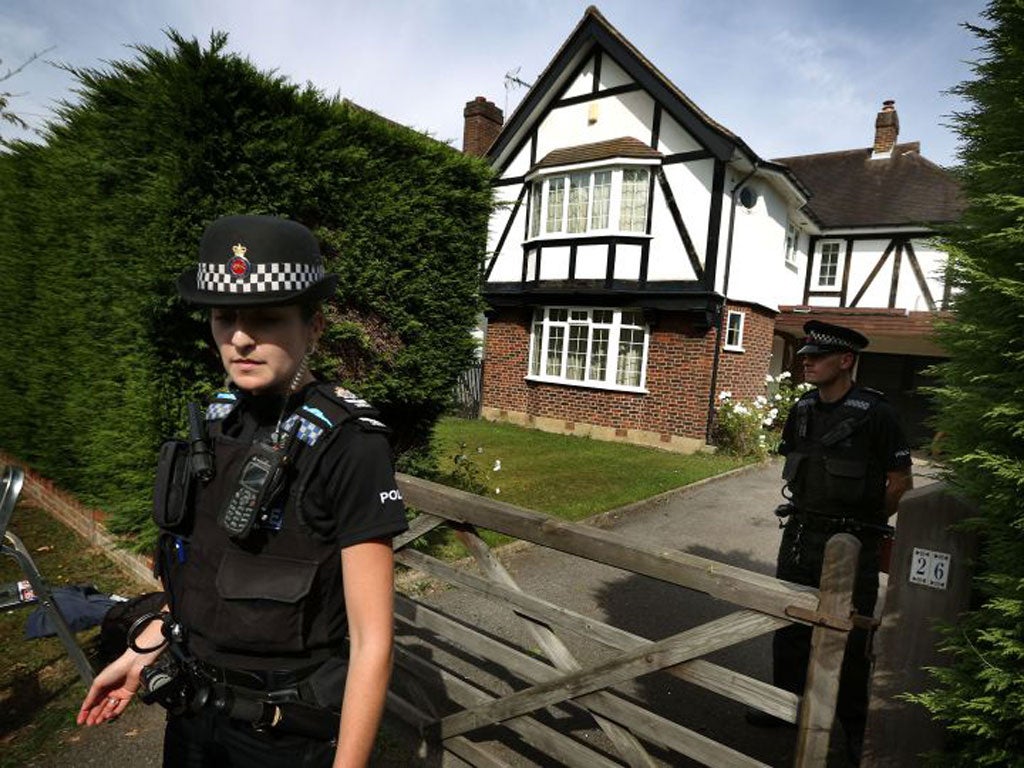Alps murders: Annecy squad to join forces with Surrey Police

The brutal quadruple murder in the Alps is to be probed by a joint Franco-British team which will have sweeping powers to seek cross-border information, as investigators seek new leads after making little progress more than fortnight after the bodies were discovered on a remote mountain track.
In an attempt to speed up what is proving to be a laborious investigation, and in the absence of much progress, France and Britain agreed yesterday to cut through red-tape by implementing a rarely-used EU law. French magistrates and gendarmes will work with Surrey police officers and Crown Prosecution Service officials in a "joint investigation team" – only the second of its kind to be created by France and Britain since the principle was established by EU governments nine years ago.
Earlier this month, three members of a British-Iraqi family, Saad al-Hilli, 50, his wife Iqbal, 47, her 77-year-old mother, and a French cyclist, Sylvain Mollier, 45, were shot dead on a mountain track above Lake Annecy in the French Alps. French investigators admit that, thus far, their inquiries have made little progress. They have been frustrated, among other things, by differences in the British and French judicial systems, which mean that some formal requests for information on the financial and family affairs of Mr al-Hilli have been rejected by the Home Office.
The Joint Investigation Team (JIT), set up yesterday under the EU judicial co-operation policy Eurojust, will make warrants issued by the two French magistrates leading the inquiry valid in Britain. The agreement will apply for the duration of the Annecy murder inquiry only. "It will be as if we are in a single country," the public prosecutor for the Annecy area, Eric Maillaud said yesterday.
The joint team will be led by the two French investigating magistrates who have been heading up the murder inquiry in France. Under the French criminal justice system, investigating magistrates have independent powers to search premises or demand access to bank accounts or documents. In Britain search warrants have to be approved by the courts.
The setting up of a JIT suggests a strong belief that the case will be solved in Britain, not France. But sources in the French inquiry admit they have made little progress in establishing a motive for a targeted attack on the al-Hilli family. Separately, a local French newspaper reported this week that Mr al-Hilli was attempting to sell an ancient property that he owned in Saint-Macaire near Bordeaux.
A week ago, the prosecutor, Mr Maillaud, said there were three principle lines of inquiry: a family quarrel over money; some link with Mr al-Hilli's work as an aerospace engineer; or the family's "Iraqi origins". French investigators have been trying to pursue the third line of inquiry but say they are receiving no co-operation from Baghdad.
One other possibility – that the murderer wanted to kill the French cyclist and the British family got in the way – has been all but dismissed by the French investigators. However, the possibility of a random attack by a deranged, local person has not been completely excluded.
Subscribe to Independent Premium to bookmark this article
Want to bookmark your favourite articles and stories to read or reference later? Start your Independent Premium subscription today.
